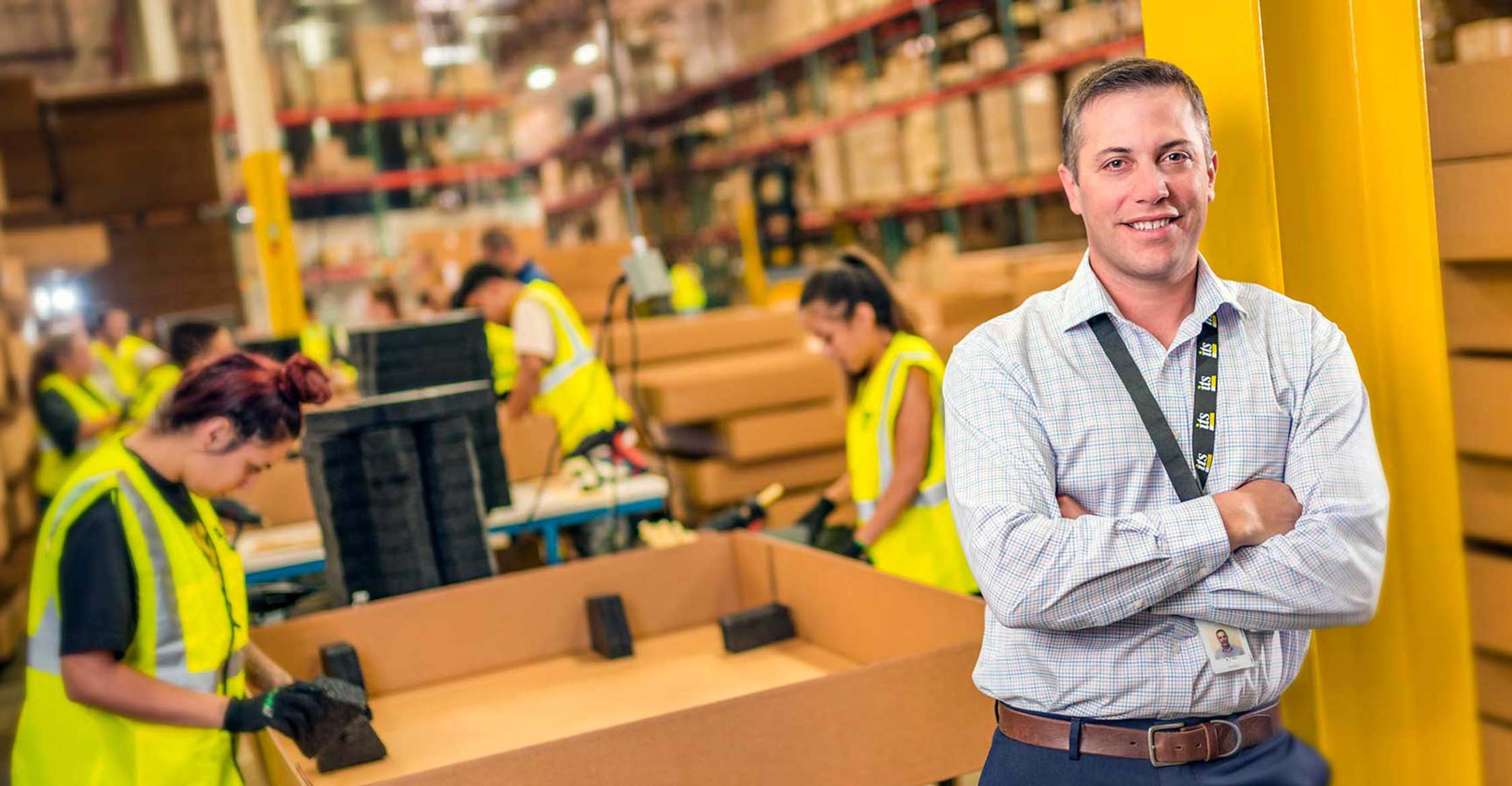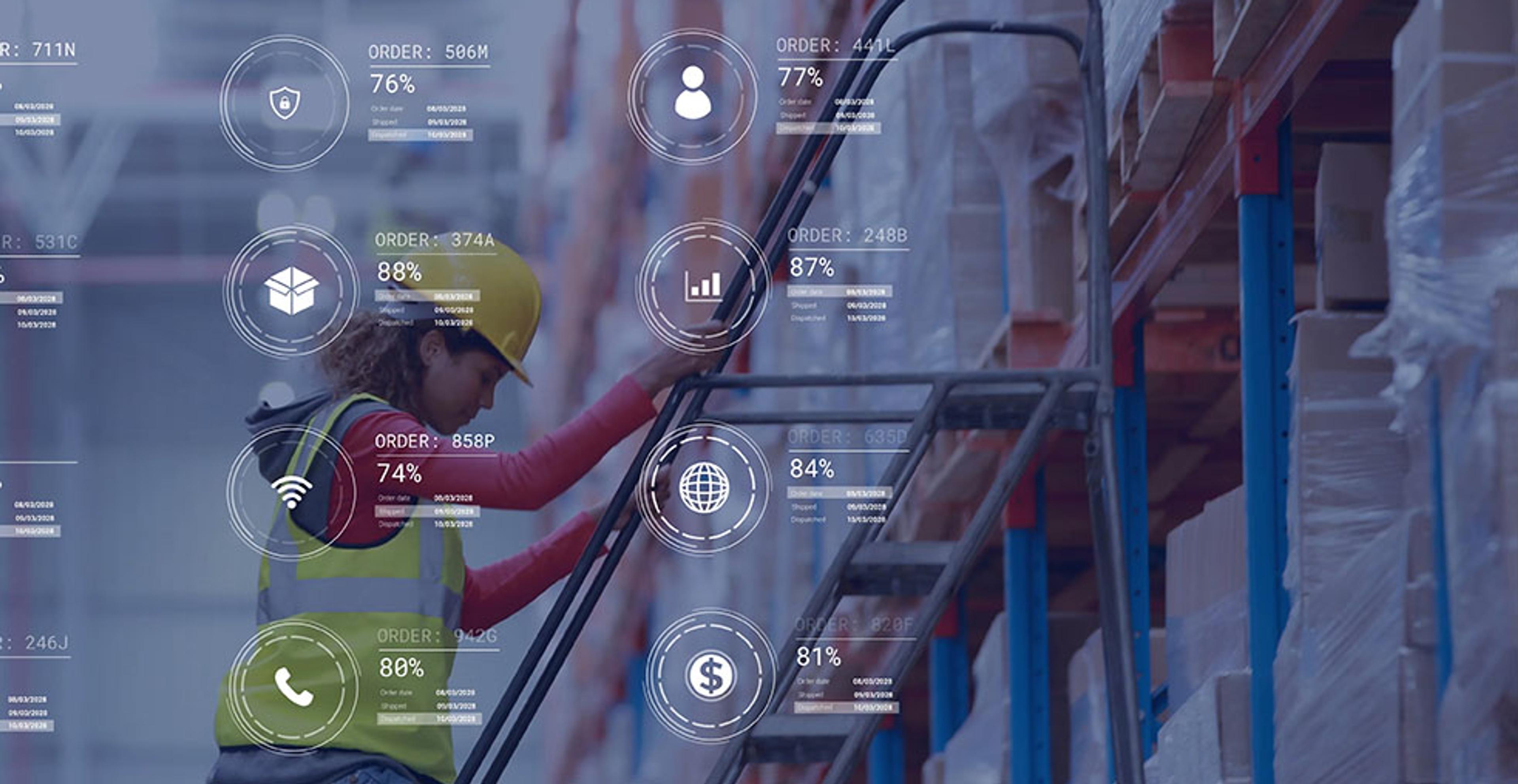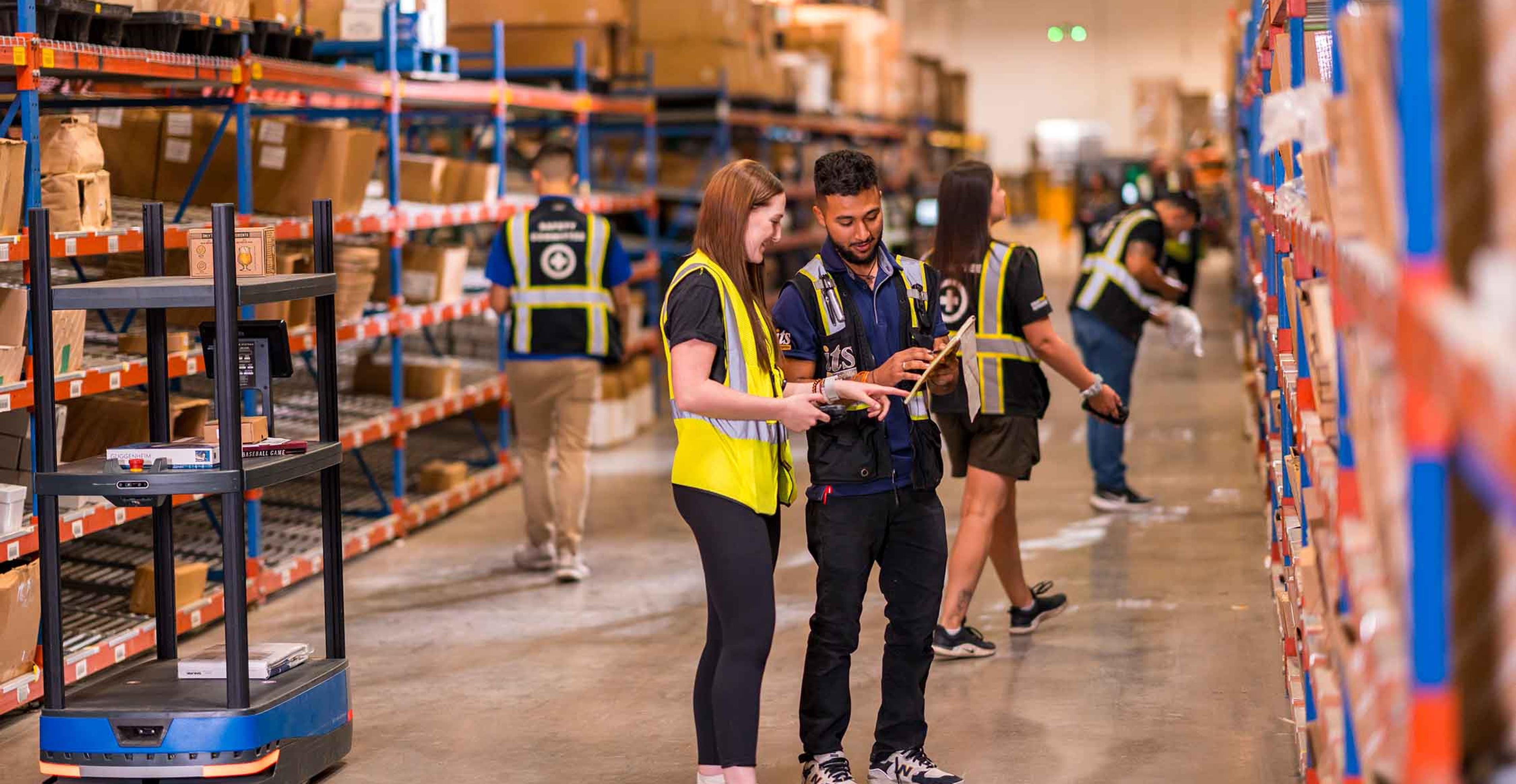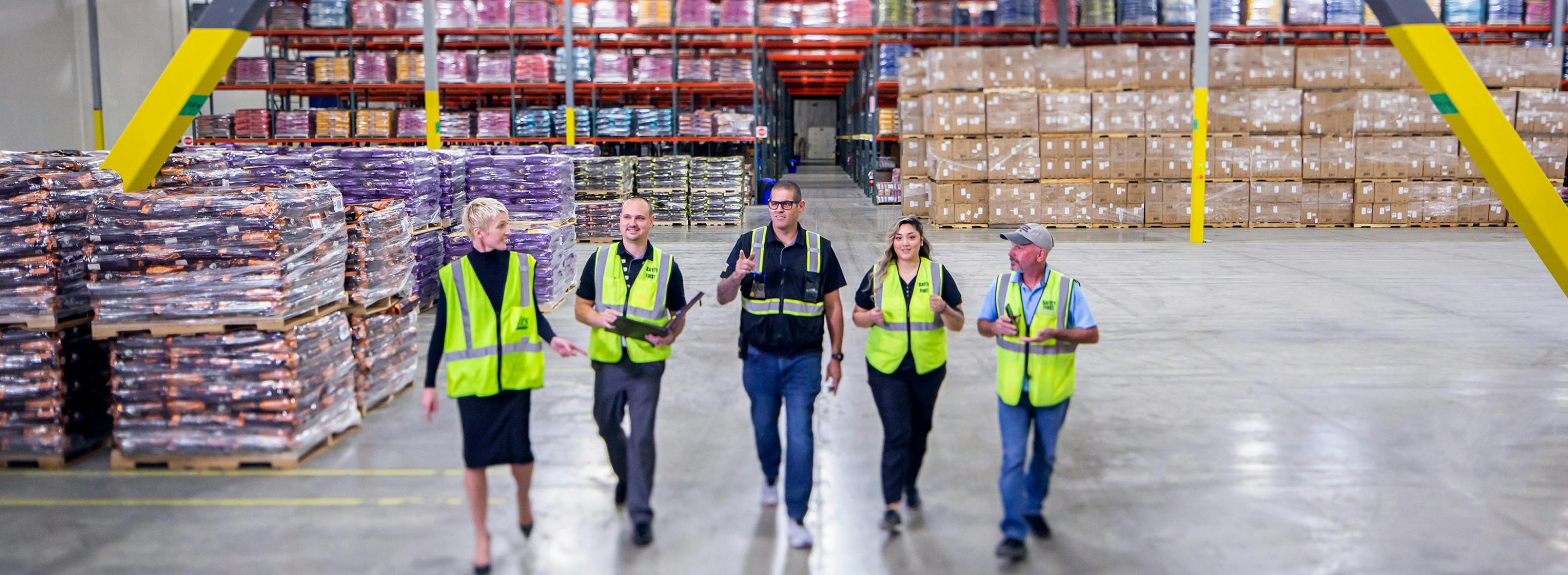
Insourcing vs outsourcing: that is the question. With the option to outsource, it can be hard to decide what the best ecommerce fulfillment strategy is for your business. Insourcing fulfillment is exactly what it sounds like: processing all orders with an internal team, without outsourcing any part of the process. Outsourcing fulfillment is partnering with a third party logistics (3PL) company or other fulfillment provider to handle the entire process for you.
Order fulfillment is a crucial step in the ecommerce process. When done accurately and in a timely manner, customers know they can trust you to deliver their items. This makes it easy for them to pick you as their supplier for future needs.
When trying to decide whether to insource or outsource fulfillment, it’s important to audit your current operations and completely understand your order volume, operating procedures, and challenges to determine what the best solution is for you. Read on to learn about the advantages and disadvantages of insourcing vs outsourcing order fulfillment.
Advantages to insourcing fulfillment
If you run a small business, insourcing could be a viable solution for you. Insourcing fulfillment translates to hiring an internal team who is responsible for picking, packing, and shipping orders, as well as managing inventory and processing returns and exchanges. Insourcing pros can include:
- Cost-effective: For a small business, insourcing order fulfillment can be the most cost-effective solution. This strategy allows you to determine exactly how much you want to spend on each step of the process and find savings in different vendors or processes.
- Product engagement: You can see and touch the product every day. This enables further improvement in packaging or other aspects of the product if you are introducing new products to the market.
- Ideal for startups: When your company is first getting started, it doesn’t make sense to go straight to a 3PL when you don’t have much volume yet. Insourcing your fulfillment allows you to get on your feet without spending too much money until you might be ready to scale your business.
- Niche products: Selling niche items typically includes high profit margins on a small number of sales. Keeping fulfillment in-house will keep additional charges from eating into your profit margins. And with smaller order volumes, outsourcing may not even be necessary.
Disadvantages to insourcing fulfillment
Although insourcing your order fulfillment process can be advantageous for some businesses, there are also some insourcing cons to consider.
- Time intensive and costly: While insourcing can be cost-effective, you often have to play your cards just right. Insourcing can be more costly in the long-term, especially if you’re paying employees to do time-intensive specific tasks like inventory management and fulfilling orders by picking, packing, and shipping in-house. Insourcing can also require separate warehouse space. All these costs can add up very quickly.
- Lack of flexibility: Often when you handle fulfillment needs in house, there is a lack of flexibility if you want to diversify your products or scale your business. Without the proper space to do so, your options can be limited. You also don’t have the redundancy of more than one service provider, which can help during disruptions in the supply chain.
- Greater risk of error: Insourcing can increase your risk of making inventory errors and processing customer orders incorrectly. Backordering is frustrating for both you and your customers.
- High-level experience: When logistics is not a core competency, insourcing can be challenging and costly.
- Loss of business function: Takes the focus away from developing products, customer service, and moving sales when you are worrying about logistics while you could be working on continuing to grow your business.
Advantages of outsourcing fulfillment
Outsourcing pros include:
- Cost-effective shipping and handling: Fulfillment outsourcing can save your business a large amount of money over time. Partnering with a 3PL or another outsourcing vendor to handle order fulfillment services grants pricing flexibility by offering fee structures that take your unique business requirements into account. An added convenience is that outsourcing services offer an all-in-one suite of solutions, meaning you don’t have to worry about paying for separate storage, packaging, and shipping costs every month. Additionally, most fulfillment companies get reduced shipping rates from preferred carriers (UPS, FedEx, DHL, etc.) and can pass those savings on to you. There is no need to spend time sorting through the different shipping options to find the best fit, when they can handle it for you.
- More efficient: Using an outsourcing provider can save business owners a considerable amount of time that would otherwise be spent filling orders, managing returns, and dealing with a myriad of shipping solutions. Outsourced fulfillment allows you to focus on your business without having to worry about the logistics.
- Scalability: When you outsource your fulfillment, it increases flexibility when it comes to scaling your business operations. That way, you don’t have to worry about additional labor, increased warehouse space, equipment, racking, technology and more when you experience a consistent increase in volume, spikes or drops in demand, or want to introduce new product lines.
- Technology capabilities: Look for a fulfillment partner that has their own IT and software development teams in-house. This is a great way to increase your competitive advantage and product fulfillment capabilities in a manner that would be more difficult to do with insourcing your fulfillment. Many third-party logistics companies also offer businesses a way to track inventory, providing invaluable visibility and transparency.
Disadvantages of outsourcing fulfillment
Outsourcing cons include:
- Investment: Although outsourcing your fulfillment is likely to be more cost-effective in the long run, the initial outsourcing cost investment can seem like a lot of money upfront.
- Custom packaging: Depending on your business and branding, you may offer highly customized packaging or kitting. Sometimes, 3PLs or fulfillment centers don’t offer high levels of customization, although most do offer branded packaging and some level of kitting.
- Less control: When you outsource this process, you will have less control and often less flexibility. It’s important to ensure your provider offers consistent and effective communication as part of your fulfillment solution, so you are aware of what’s going on with every step of the process at all times.
Learn more about outsourcing fulfillment with ITS Logistics
Deciding between insourcing vs outsourcing your fulfillment can be a difficult decision. There are pros and cons to each method and the right call for you really depends on your specific business and the outsourcing provider you choose. At ITS Logistics, we are well-versed in outsourcing fulfillment for all kinds of companies: from ecommerce businesses to retail suppliers and everything in between, while always working to improve customer satisfaction. If you’re struggling to determine the right supply chain management solution for your business, give us a call today. We’ll be happy to talk through your situation to determine if we can help you, and if we can’t, we can recommend other options for you.
Learn more about our warehousing, distribution and fulfillment services today.



